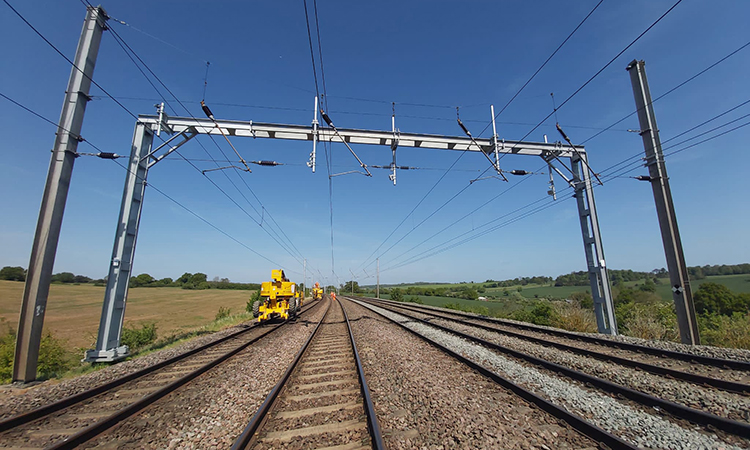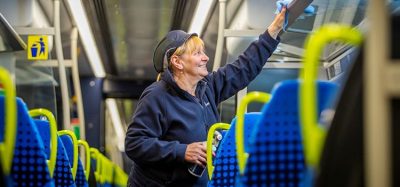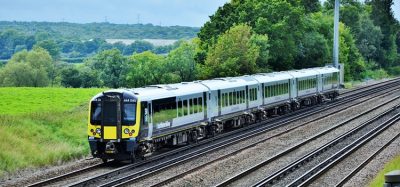Electrification work to begin on the Midland Main Line
Posted: 6 July 2023 | Elliot Robinson (Editorial Assistant - Global Railway Review) | 1 comment
Network Rail have confirmed that electrification work is to continue on the Midland Main Line to help create a greener railway for passengers.


Credit: Network Rail
Electrification work is to continue on the biggest programme of improvements to the Midland Main Line since its completion over 150 years ago.
On 9 and 16 July, engineers will continue work to prepare for an electrified railway on the Midland Main Line between Kettering and Wigston. This will help to create a cleaner, greener railway for passengers travelling along this section of the Midland Main Line in the future. These key upgrades include improvements to drainage systems as well as important work to bridges to provide clearance for new overhead line equipment.
Related content you will enjoy:
Work completed on £82m sea wall to protect vital coastal rail route
These upgrades will mean a reduced East Midlands Railway (EMR) service between London and Sheffield/Nottingham, with diversions in place leading to extended journey times. These services will not be calling at Market Harborough, with buses replacing trains between Kettering and Market Harborough and Market Harborough and Leicester.
“These improvements are an important part of the Midland Main Line Upgrade,” Gary Walsh, Network Rail’s Route Director for the East Midlands, said. “We’re preparing for a greener railway which is fit for the future, leading to smoother and more reliable journeys in the East Midlands.”








I read with great interest the news about the electrification work set to begin on the Midland Main Line. It is indeed a significant step towards creating a greener and more sustainable railway network for passengers.
The ongoing efforts to improve the infrastructure and introduce electrification will not only contribute to reducing carbon emissions but also lead to smoother and more reliable journeys in the East Midlands. The upgrades, including improvements to drainage systems and bridge work for overhead line equipment, demonstrate a commitment to enhancing the overall efficiency and sustainability of the rail network.
While I acknowledge that these upgrades may result in temporary inconveniences such as reduced service frequency and extended journey times, it is crucial to prioritize the long-term benefits they will bring. The provision of replacement bus services during the work shows a commitment to minimizing disruption and ensuring passengers can still travel with relative ease.
I commend Network Rail for their dedication to creating a cleaner and more efficient railway system. By investing in sustainable infrastructure, we can build a better future for both passengers and the environment. I look forward to witnessing the positive impact of these improvements on the Midland Main Line.